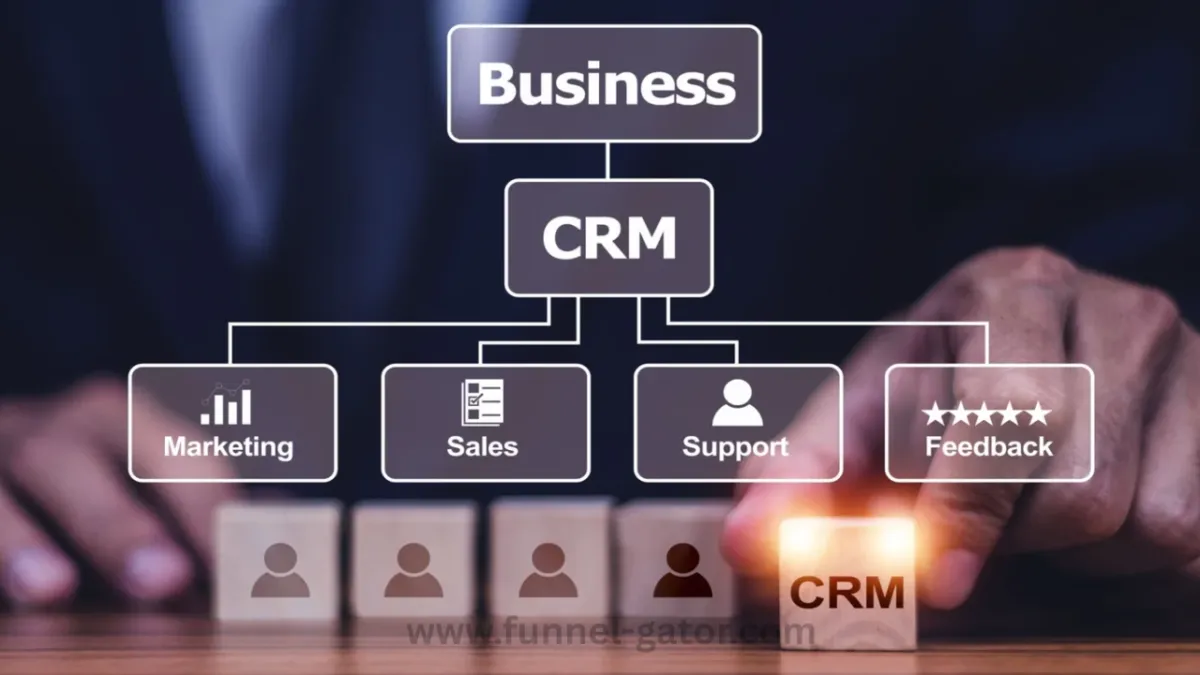
CRM System Meaning: A Simple Guide for Everyone
If you’ve ever run a business or worked in sales, you’ve probably heard the term CRM system tossed around. But what exactly does it mean? And more importantly, how can it help you grow your business?
Let’s break it down in plain, simple English.
🚀 What Does CRM System Mean?
The term CRM stands for Customer Relationship Management. A CRM system is software that helps businesses manage and improve their interactions with customers, both current and potential.
Imagine this: You walk into your favorite coffee shop, and the barista knows your name and your usual order. That’s personal attention — and it makes you feel valued. Now, imagine your business doing that — but not just for one customer. For hundreds or thousands. That’s what a CRM system does.
📦 What Does a CRM System Do?
Think of a CRM system as a digital brain for your business’s relationships. It stores customer information, such as:
Names and contact details
Purchase history
Communication records
Follow-up reminders
Customer service notes
But that’s just the beginning.
Modern CRMs also help with:
Customer support ticketing
Task and calendar management
👨💼 A Real-Life Anecdote: The Story of Tom’s Car Dealership
Tom runs a small car dealership in Birmingham. In the beginning, he kept customer notes in a notebook. It worked — until he started growing.
Customers would call back, and Tom couldn't remember their exact model interest. His team sometimes forgot to follow up on leads. He lost sales.
Then he started using a CRM system.
Now, every call, visit, and quote is tracked. He gets reminders to follow up. Customers feel remembered and respected. Sales went up by 40% in 6 months.
Moral of the story: A good CRM system pays for itself — and then some.
🔍 Who Should Use a CRM System?
You don’t need to be a big company to benefit from a CRM.
A CRM system is useful for:
Small businesses trying to organize leads
Freelancers wanting to manage client projects
Startups looking to scale fast
Customer support teams tracking complaints
Marketing teams running campaigns
If you deal with people, a CRM system will make your life easier.
🛠️ Step-by-Step: How to Start Using a CRM System
Here’s a simple roadmap:
Step 1: Identify Your Needs
Ask yourself:
Do I need better lead tracking?
Am I missing follow-ups?
Is my customer support disorganized?
Knowing your pain points helps pick the right CRM.
Step 2: Choose a CRM System
There are many CRM platforms to choose from:
HubSpot CRM – great for beginners and free
Salesforce – very powerful but complex
Zoho CRM – good balance for small-medium businesses
Make sure it fits your team size and goals.
Step 3: Import Your Data
You can upload your:
Customer list
Past emails
Tasks and appointments
Many systems let you import from Excel or Gmail.
Step 4: Set Up Automations
Want an automatic email after someone fills out a form? Or a reminder to call 3 days after a quote?
Automate these steps to save time and close more deals.
Step 5: Train Your Team
Make sure your staff knows how to:
Add customer data
Track communications
Update statuses
Use mobile apps if needed
Step 6: Review and Improve
Use your CRM’s analytics to see:
Which salesperson performs best
Where leads drop off
What customers ask the most
Then improve those areas.
🎯 Why You Should Invest in a CRM System
Let’s be honest — managing customer data in spreadsheets or notepads is like driving blind. You're guessing, not steering.
A CRM system helps you:
✅ Improve customer satisfaction
✅ Close more deals
✅ Save time with automation
✅ Work smarter, not harder
✅ Grow your business with confidence
And remember: customers don’t just want to buy — they want to feel understood.
🌐 Semantically Related Keywords to Remember
Here are some terms you’ll often see related to CRM systems:
Lead management
Contact database
Customer journey
Pipeline tracking
Sales funnel software
Client retention system
CRM automation
Customer lifecycle
Sales CRM tools
Each of these plays a role in how a CRM system helps your business thrive.
💡 Final Thoughts
You don’t need to be tech-savvy to use a CRM system. All you need is a desire to build better relationships with your customers.
It’s like hiring a super-organized assistant who never forgets a name, date, or deal.
So why wait?
👉 Try a CRM system today and see how much smoother your business can run.
❓FAQs About CRM Systems
Q1: Is a CRM system only for sales?
A: No. A CRM also helps marketing, customer service, and even operations. It’s for anyone dealing with customers.
Q2: Can small businesses use a CRM system?
A: Absolutely! There are free or low-cost CRMs perfect for small businesses.
Q3: How much does a CRM system cost?
A: Some are free (like HubSpot). Others can range from $10 to $300/month, depending on features.
Q4: Is a CRM system hard to use?
A: Most modern CRMs are user-friendly and offer tutorials or support.
Q5: What’s the biggest benefit of using a CRM?
A: You stay organized, never miss follow-ups, and build stronger relationships — which means more sales.


